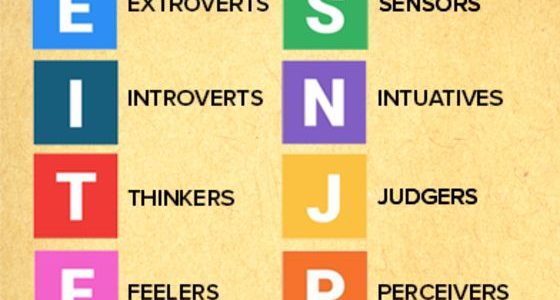Ok – I haven’t lost the plot. And I was speaking broadly there – I wasn’t referring to the whole alphabet. Just the letters E,I, S, N, T, F, J and P….You may be sitting there thinking – no Carole you definitely HAVE lost the plot, or you might be thinking, “Aha, she is taking about Myers Briggs.”
Myers Briggs is a personality profiling tool that we have used over the years with our ‘HR’, ‘MD’ or sometimes our ‘Sales Director’ hat on. And the reason it is the subject of this week’s blog is something very interesting happened this morning.
I was working on site at a client with my sometime cohort, the lovely Rebecca Stevens – who is a psychologist and Myers Briggs certified trainer. We were delivering the results of the Myers Briggs tests conducted a few weeks ago, and one of the people there – who shall remain nameless – very strongly disagreed that the way the test chart was presented was correct. He could not understand what every other person in the room did. And this was very clearly because of his type (S and T). SO he beautifully illustrated the point of running these sort of tests. The rest of the group understood WHY it was that he thought so very differently to them.
If you aren’t aware of MBTI, it does NOT show you what you are good at or not good at. Therefore – it cannot (like DISC for example), be used for recruitment purposes. This is a HR or management tool, used to show what you PREFER to do, how you PREFER to process information or make decisions. For example, my DISC profile will show you I am good at detail (indeed editing is a good part of my week and I love it), however in general I prefer the bigger picture and get bored with the detail quickly – so it should not be a big part of my job.
Understanding how another person can think very differently from you can make a massive difference in a team environment.
We all see the world from our own perspective, and whilst we intellectually know this about others, we don’t really understand it. If you have ever asked yourself why someone did something – it is because it does not make sense to you. You would not have done that / made that decision / said those things. And if we don’t understand then conflict arises. Ultimately conflict leads to bad things – lack of team work, decreased productivity, decreased morale, less sales, losing customers, losing staff.
Myers Briggs look at 4 scales and we don’t have time to go into all of them in this article – but let’s just look at one. Judging and Perceiving. (Now Judging does not mean judgemental and perceiving doesn’t mean ‘perceptive’). And let’s look at this area in the framework of decision making.
People who are ‘judging’ will like to make decisions as quickly as possible, in an objective manner, looking at the problem or decision from the outside in, considering all facts or empirical evidence and do what ‘makes sense’. You might hear these people becoming frustrated if a decision is taking ‘too long’ and they might say things like “Can we just MAKE a decision, any decision?”. These people prefer the comfort of making a decision (even if it might be the wrong one) than the uncertainty of not making a decision. If they are asked to change their decision this will make them very uncomfortable.
On the other hand people who are ‘perceiving’, like to go with the flow on decisions. They will make the decision when it feels right to them, which is often at the last minute. They want to be open to any changes or new information and feel uncomfortable making a decision too soon in case they ‘miss out’. They are also happy to change their decision if necessary. They feel no stress at all about outstanding decisions. They will probably be the last to order their food in a restaurant as they will want to see what everyone else orders first.
If you know that you are a P boss, and are working with a J – it will help you to understand that your employee needs the certainty of a decision being made. They will be uncomfortable with what they see as ‘wishy washy’ timeframes. They feel happier with a step by step approach, rather than your more ethereal, open and flexible one – which will look to them as you ‘being all over the place’. P people don’t like a lot of structure – it makes them feel hemmed in.
P people don’t do well in very rigid environments (like school) where they are perceived as rule breakers. They are not necessarily trying to break the rules, they just don’t see the point of them.
In a business you need a balance. A team full of J people will find innovation and change very hard, and won’t naturally lead any change, and will be slow to respond to it. Bad for business. On the other hand a team of P people will have great ideas, and innovate, but never actually get anything done. So ideally you need the 2. And a mix of all the other letters of the MBTI alphabet too.
If you are interested in Myers Briggs, or DISC or Talent dynamics, get in touch and either me or one of my fab associates will be able to help. In fact, if you have any people issues and want to book a strategy call – Email me at [email protected]
For now – let me know if YOU are a P or a J based on the info above. I’d love to know
